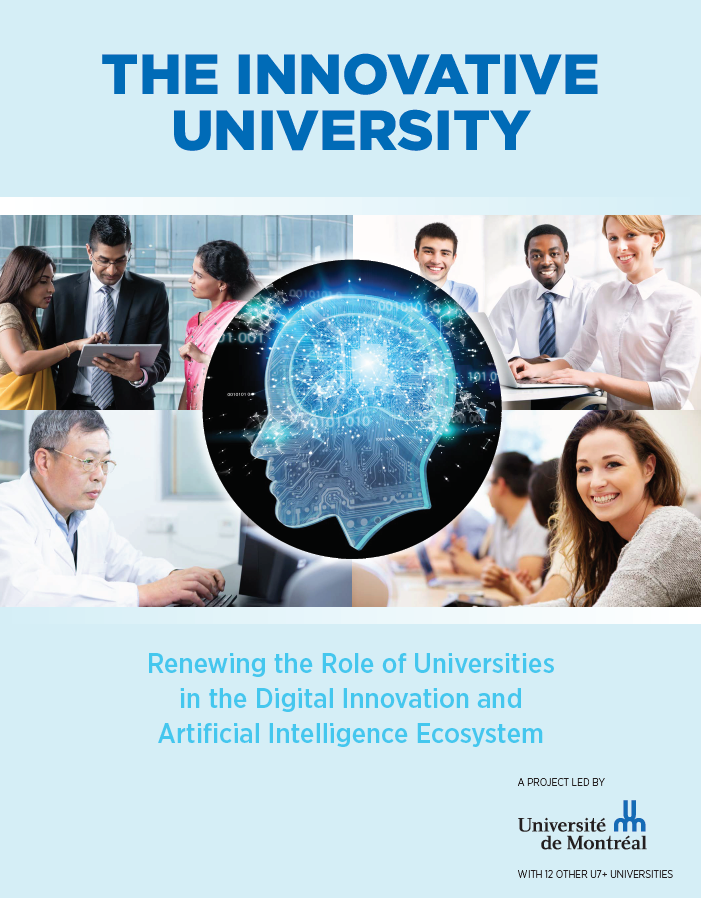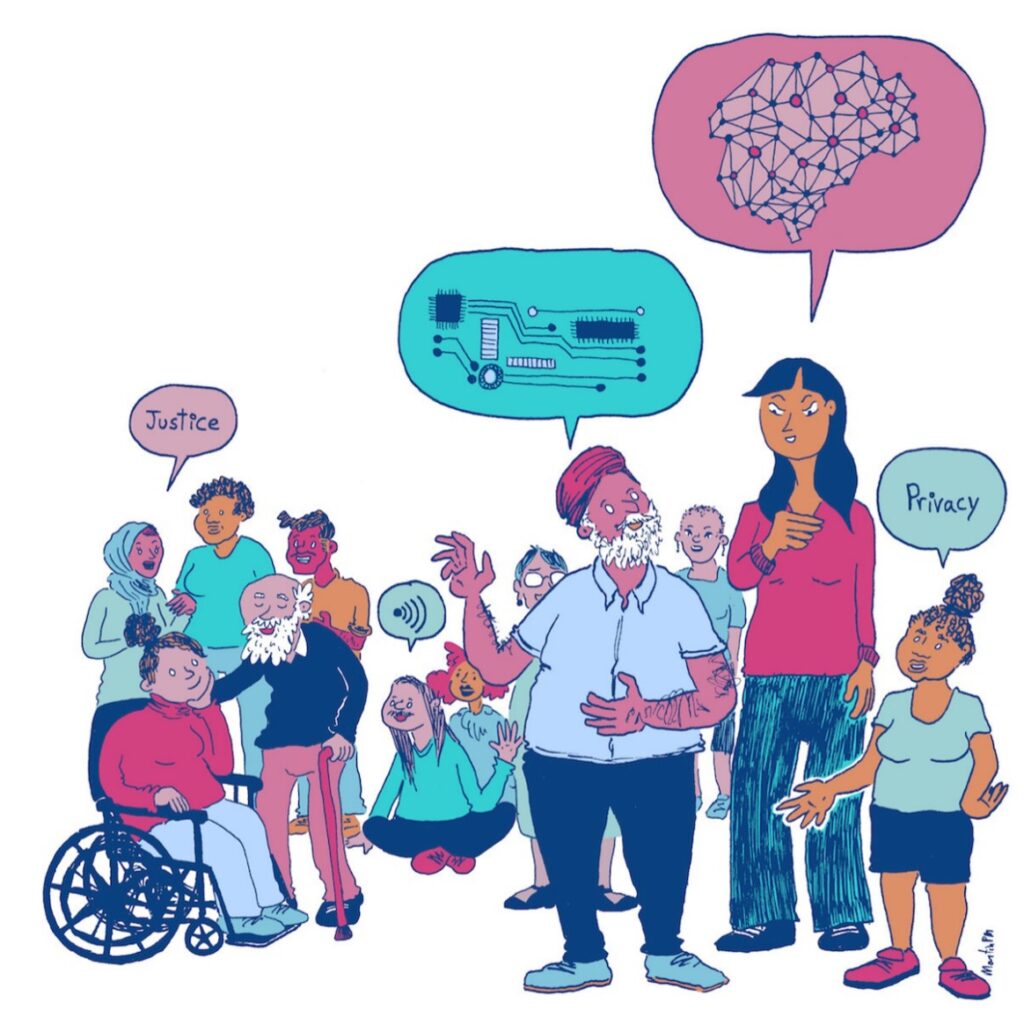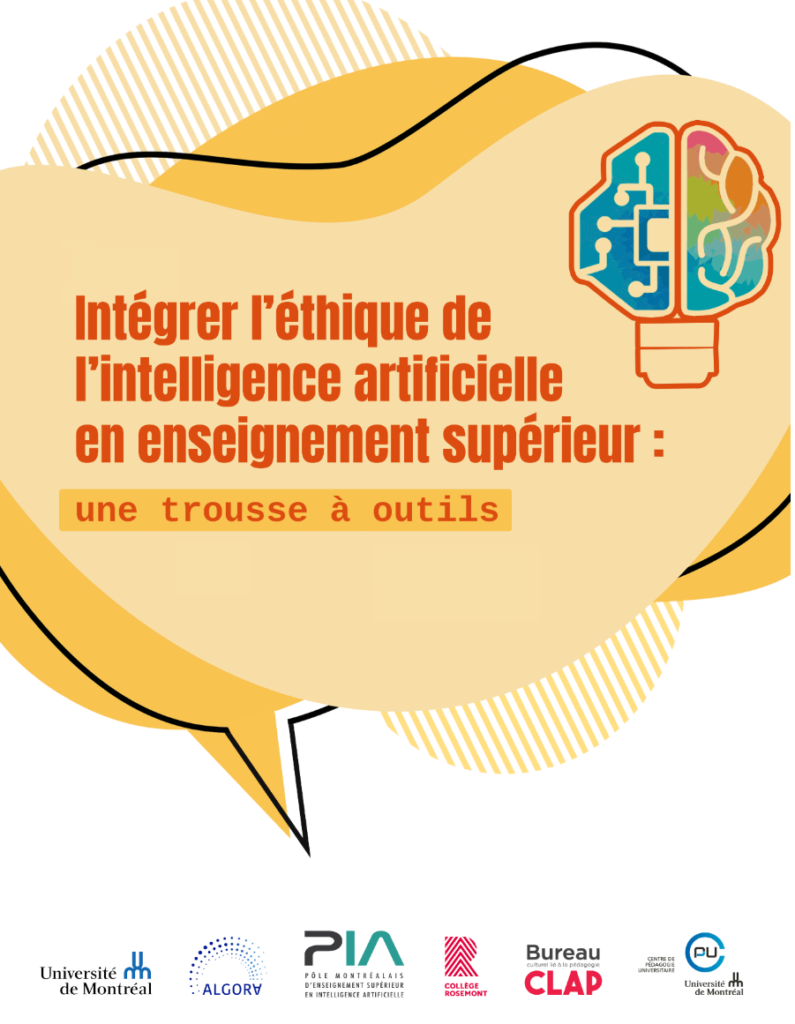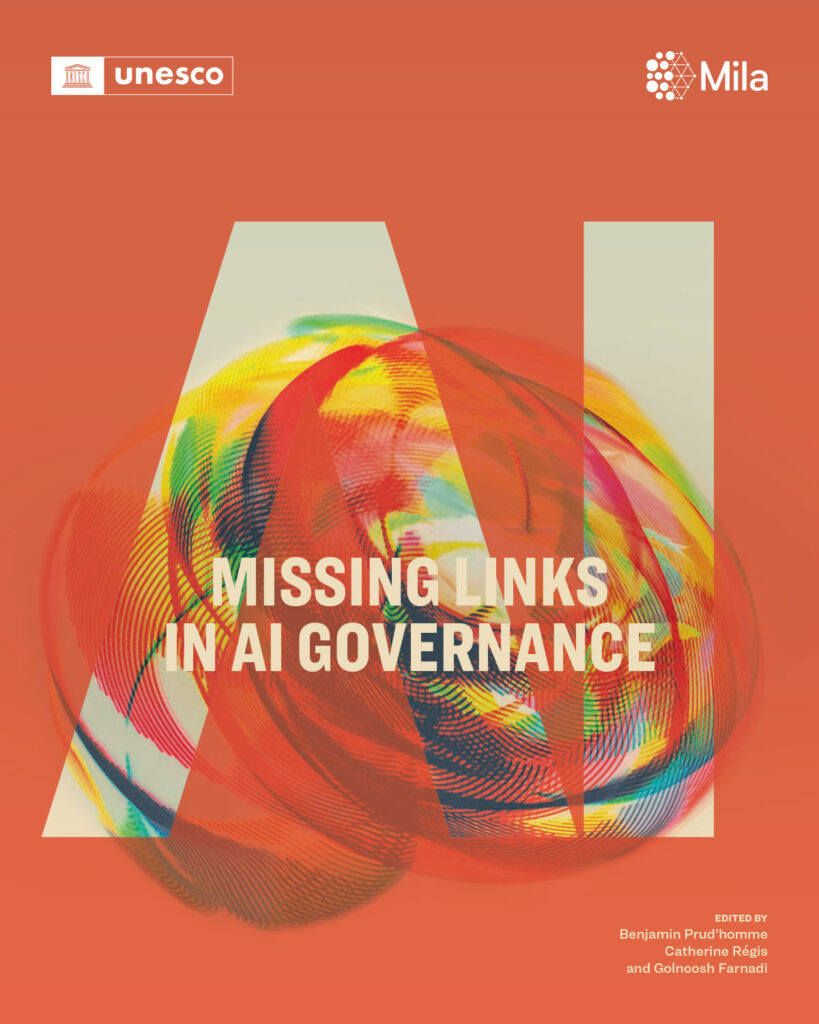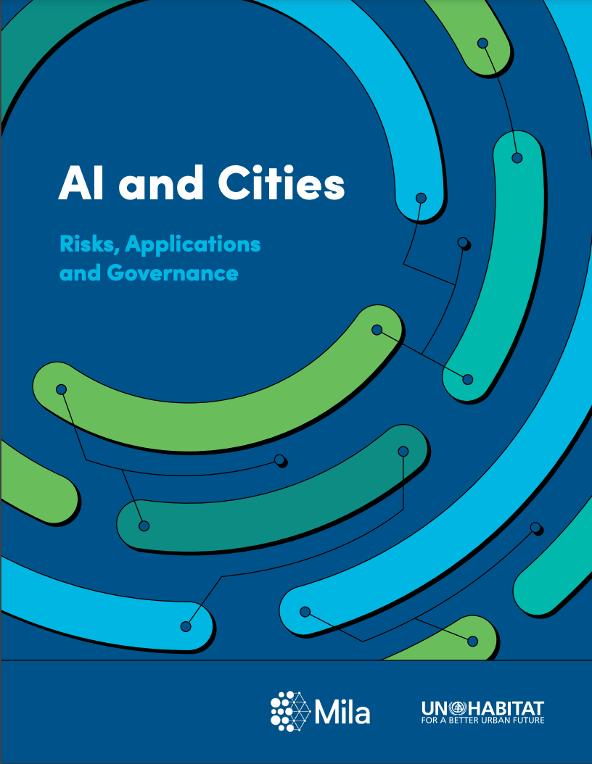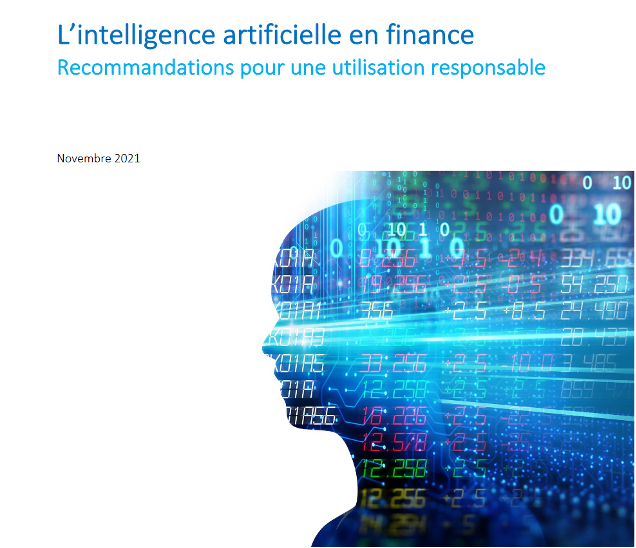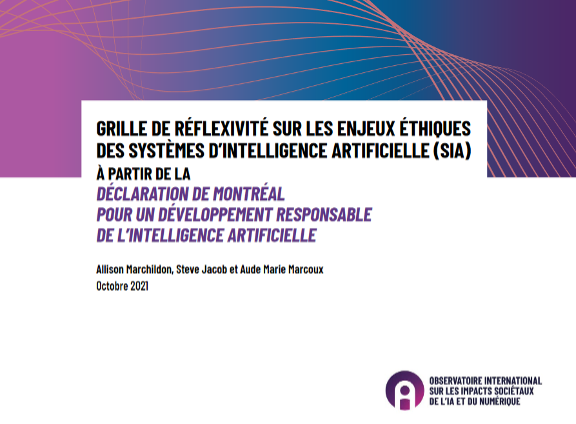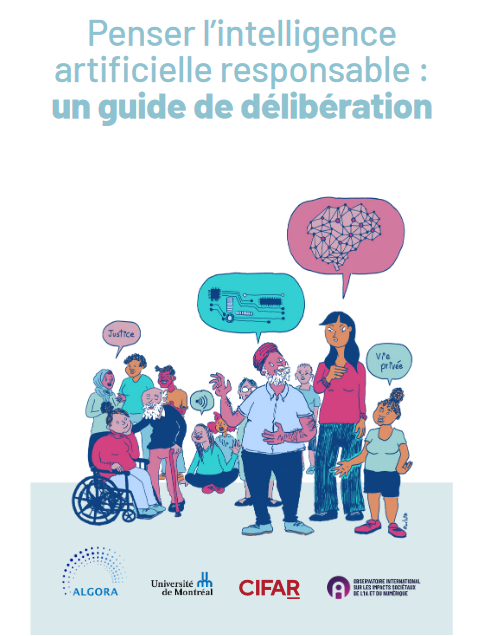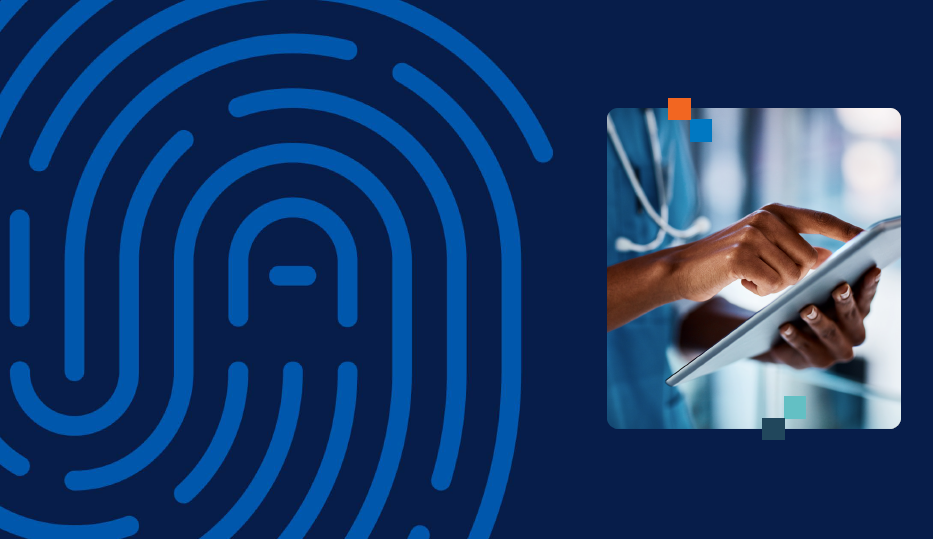Initiatives linked to the Declaration
The Innovative University: Renewing the Role of Universities in the Digital Innovation and Artificial Intelligence Ecosystem
The Innovative University: Renewing the Role of Universities in the Digital Innovation and Artificial Intelligence Ecosystem is a document produced by the U7+ alliance in 2020. U7+ is a network of universities from the G7 countries and beyond, committed to academic freedom, university values and their key role as global players. Its members engage in…
Read MoreUNESCO’s Open Dialogue On AI
In 2020, UNESCO launched the Open Dialogue On AI, a major international consultation to inform recommendations for AI governance. About 50 deliberative activities were conducted by Mila and Algora Lab during the summer of 2020, with 611 participants from 54 countries, based on a text produced by a committee of experts and using the co-construction…
Read MoreIntegrating the Ethics of AI in Higher Education: A Toolkit
This toolkit is intended for all secondary schools and colleges, both French and English, in Quebec. It aims to guide teachers and equip students on topics related to the ethics of AI, through a presentation of fundamental concepts, the Montréal Declaration’s co-construction method, and prospective scenarios. It also provides a facilitation guide for teachers. This…
Read MoreMissing Links in AI Governance
This collective book, co-edited by Mila and UNESCO, highlights the urgent need for a framework for AI in the context of rapid and exponential technological progress. The 18 articles that make up the book were written by members of the academic community, industry and civil society. They highlight issues that are often overlooked but are…
Read MoreAI & Cities: Risks Applications and Governance
This white paper is the result of a collaboration between UN-Habitat, the UN programme for sustainable urbanization, and Mila, the Quebec Institute for Artificial Intelligence. Aimed at policy makers and urban planning practitioners, the book provides practical recommendations for using AI in a useful and responsible way to foster sustainable and inclusive cities. It presents…
Read MoreAI in finance: Recommendations for its responsible use
The report Artificial Intelligence in Finance: Recommendations for its responsible use was published by Autorité des Marchés Financiers (AMF) in November 2021. Based on two years of work carried out in collaboration with Marc-Antoine Dilhac and his team at Algora Lab, in partnership with OBVIA, CIRANO and Polytechnique Montréal, the report describes the ethical specificities…
Read MoreReflexivity grid on the ethical issues of artificial intelligence systems (AIS)
This reflexivity grid (in French only), designed by members of the OBVIA scientific community, is a tool to help AI professionals and policy makers reflect on the ethical implications of AI systems and design ethical solutions. It is based on the ten principles of the Montréal Declaration and draws on the needs and experiences of…
Read MoreGuide to the Principles of Responsible Innovation and Artificial Intelligence in the Healthcare Sector
The Guide to the Principles of Responsible Innovation and Artificial Intelligence in the Healthcare Sector (in French only), launched in March 2022 by the Centre Hospitalier de l’Université de Montréal (CHUM), is a tool to guide developers and users of artificial intelligence (AI) technologies in the healthcare field. The guide is based on the ten…
Read MoreResponsible Artificial Intelligence: a guide for deliberation
Designed by Algora Lab and OBVIA, in partnership with CIFAR, this guide aims to provide participants with the necessary tools to take part in public debates on artificial intelligence (AI). It is designed to make the concepts related to AI and its ethical issues more accessible, and is an entry point to public deliberation on…
Read MoreHealth Professionals and AI: Prototypical Code of Ethics to Govern and Inform Professional Practices
Health Professionals and AIPrototypical Code of Ethics to Govern and Inform Professional Practices January 26, 2023 Researchers Marco Laverdière and Catherine Régis have published a practical tool designed to support the responsible and appropriate use of AI in professional practices in the healthcare and human relations sectors. This document presents the conclusions of the reflection…
Read More